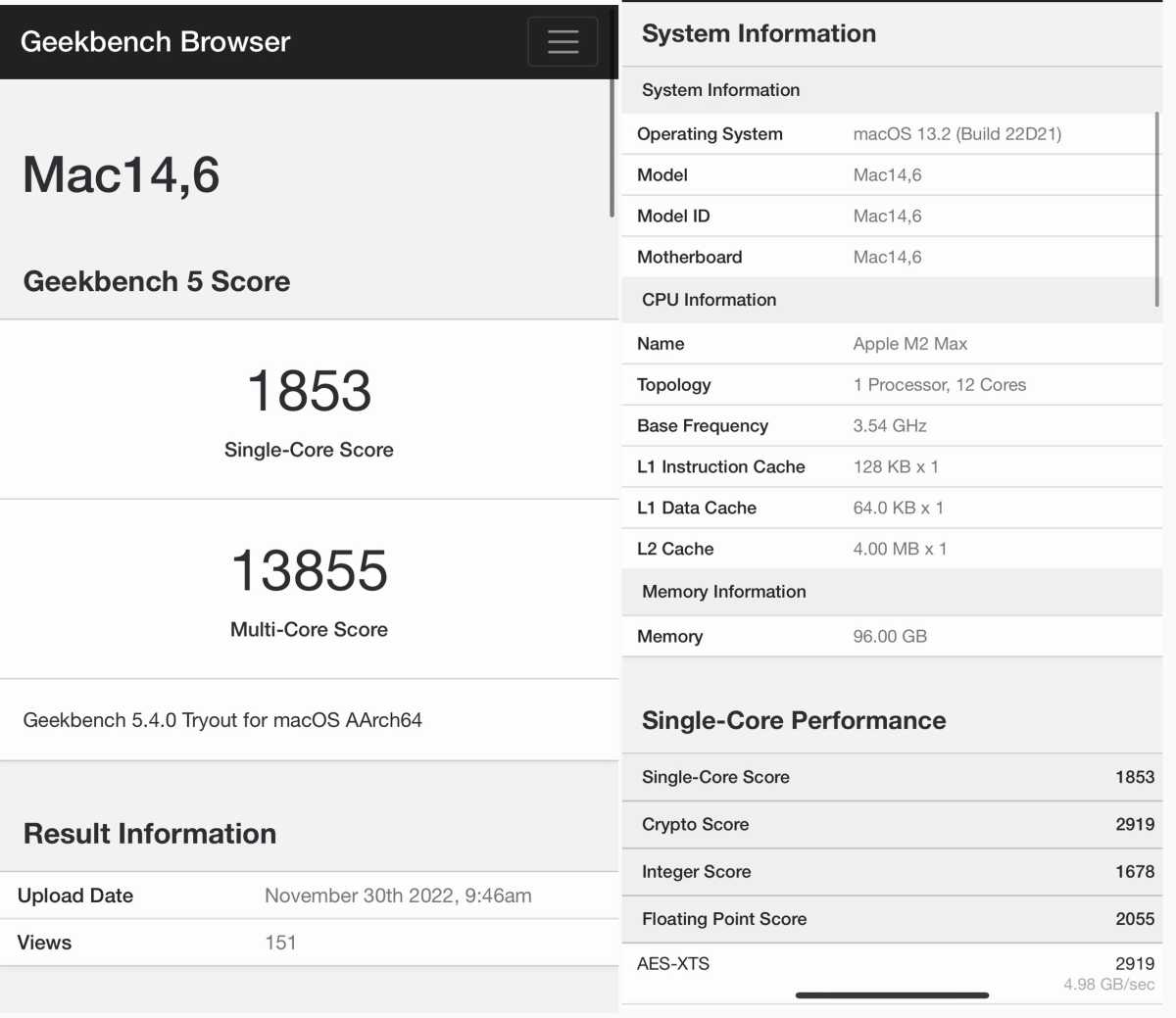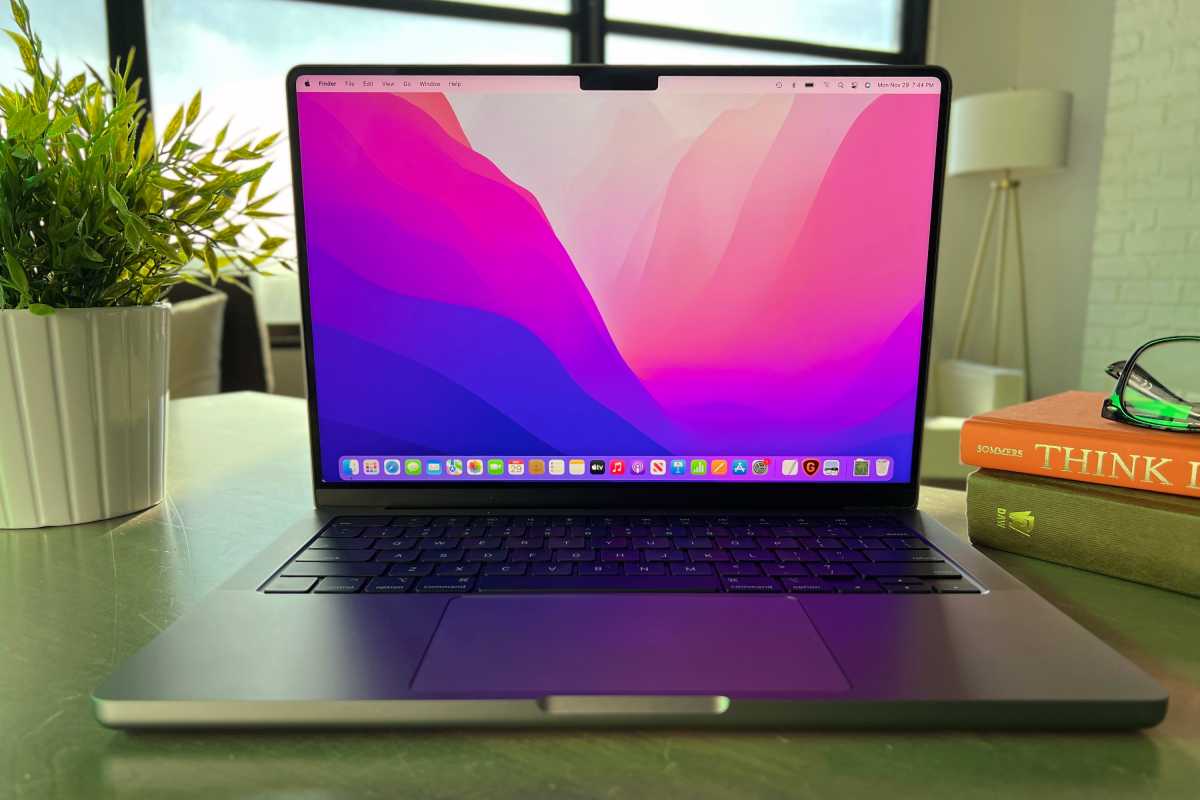After the first leaked CPU benchmark scores for the M2 Max processor arrived last week, another set of scores is making the rounds today and they’re…fine. Entirely reasonable, in fact. If you were to look at the performance jump from the M1 to the M2, and apply that same relative to the M1 Max, you’d be in the ballpark.
First posted by @VNchocoTaco on Twitter, the alleged Geekbench 5 scores for a “Mac14,6” product (such naming is common with unreleased hardware) are 1,853 for single-core and 13,855 for multi-core. The newer scores are a bit better, with a single-core score of 2,027 and a multi-core score of 14,888. That compares to scores of about 1,746 and 12,154, respectively, for a MacBook Pro with the M1 Max in the Geekbench 5 database.

Geekbench
In other words, the M2 Max looks to be about 10-15 percent faster in single-core and 15-20 percent faster in multi-core CPU performance. The gap between the M1 and M2 is similar..generally around 8-9 percent for single-core and 16-18 percent for multi-core, depending on which particular M1-based product you’re looking at.
Early scores like these are often not quite up to the speed of the final product, as Apple continues to tweak firmware, drivers, and cooling to deliver the best performance. For example, the newer benchmarks show a chip with a clock speed of 3.68 GHz versus 3.54 GHz for the first numbers, which could account for the difference. The newer benchmarks may be from a Mac Studio while the previous set was from a MacBook Pro, or they could be different versions of the chip in testing.
The benchmark results show 96GB of RAM, a 50 percent increase over the 64GB maximum amount of RAM available with the M1 Max. Again, not a crazy number, especially if Apple aims to provide more memory bandwidth by moving to a wider memory bus (the M1 Max already uses LPDDR5).
If there’s a surprise here, it’s the claimed 12-processor cores. The M1 and M2 have the same arrangement of 8 processor cores (four high-performance and four high-efficiency). The M1 Max has 10 cores (eight high-performance and two high-efficiency), and we would expect the M2 Max to have the same arrangement. Apple increased the core count on the M1 but only on the graphics side. The CPU still has the same eight cores (four high-performance, four high-efficiency). So two extra CPU cores would represent a change.
But a move to 12 means either two additional high-performance cores, or more likely, hanging on to four high-efficiency cores. The multi-core score of under 14,000 is a little bit disappointing if there are two additional cores, but then again, it’s not uncommon for early leaked benchmarks to come in lower than final, fully optimized products.

The M2 Max processor will likely debut in the 14-inch MacBook Pro
IDG
A lot more to come
Even if this is accurate, it doesn’t tell us all that much about the M2 Max. After all, the processor gains were the least interesting thing about the M2. It was the boost in GPU performance, bandwidth, and video processing was a bigger deal. We don’t know what Apple intends to do in those areas with the M2 Pro, Max, and Ultra, or if it has any surprises in store like a big boost to the Neural Engine.
And of course, this Geekbench score says nothing about power efficiency and battery life, which are critical areas for Apple’s future Macbook Pro laptops. In fact, a rumor this week has suggested that those are two key areas for improvement.
So while we think this leaked benchmark is possibly true, and a reasonable guess if not, we’d remind you that it’s an incomplete picture of what to expect from the M2 Max and the products in which it will be found.





